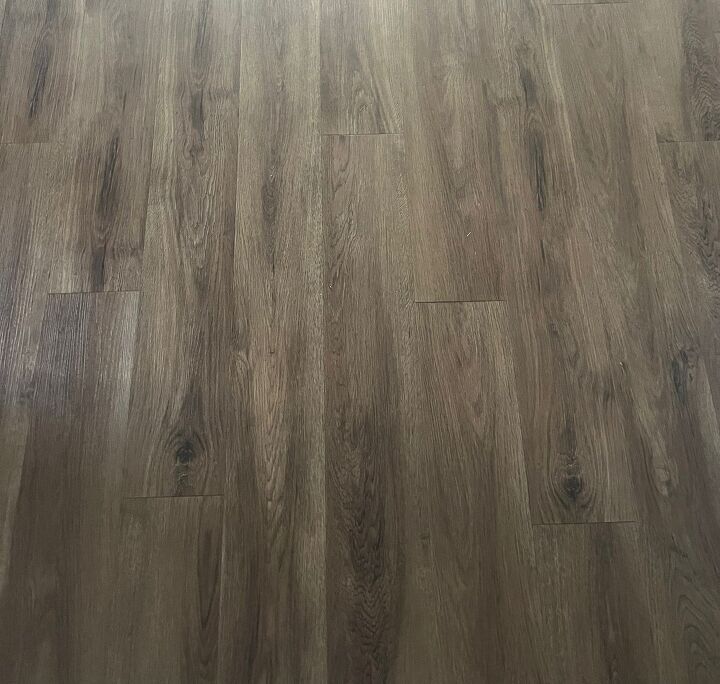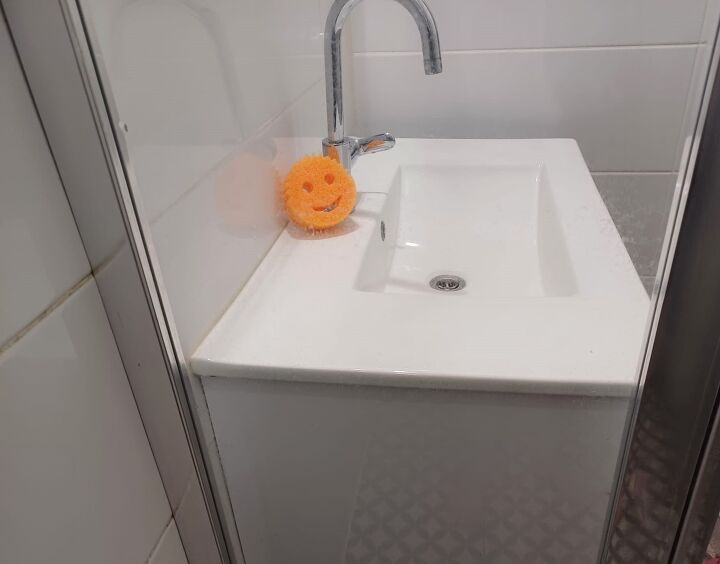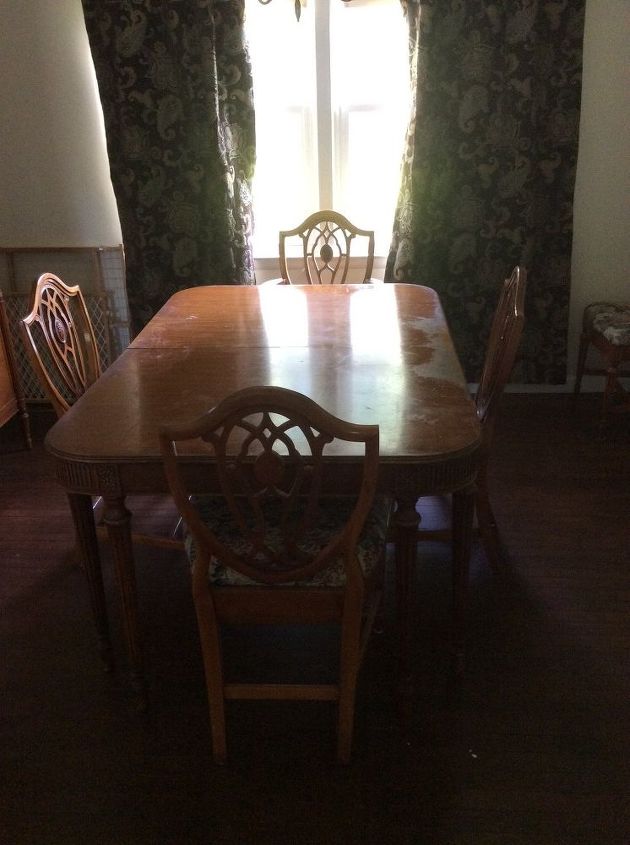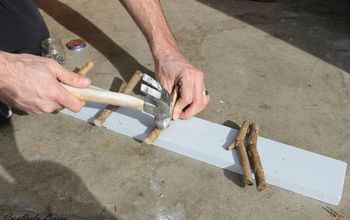When looking for a contractor, what are the top three things you look for?

-
Insurance, references from past customers, willingness to meet and discuss project
 Betty
on Dec 23, 2011
Helpful Reply
Betty
on Dec 23, 2011
Helpful Reply -
-
Thanks Betty for your well informed response! You'd be amazed at how many of my homeowners "assume" the contractor has insurance! Still need to check with the ins. co. to make sure that the premiums are paid up. Refs from past customers over a span of years is good too as it shows the work held up over time to the homeowner's satisfaction. Willingness to meet and discuss the project thoroughly is an absolute must. By the way, totally agree with your response to "how much lighting is too much?" It's fun to see razzle and dazzle this time of year!
 Kat's Home Repair Referrals
on Dec 23, 2011
Helpful Reply
Kat's Home Repair Referrals
on Dec 23, 2011
Helpful Reply -
-
Here's my typical blurb about choosing a contractor: As a rule of thumb when dealing with contractors, always get at least 3 separate bids on your project. Many contractors will come and give a bid for free. You might just throw out the highest and lowest bid costs if they are radically different from the others. The radically highest guy might be trying to make a quick buck, and the radically lowest cost guy may not really have the experience to handle to task. Check in with the BBB to see if they have any history. Some questions to ask them: - How much will this cost? (Guess that's an obvious one) - How long will this project take? - How much experience do these workers have? - Will they haul away any debris and clean up after themselves? - Are they licensed and insured? (Ask for proof for your records.) - Have they ever had a "mishap?" - Do you have recent references that I can talk to? - Has your company ever been a part of some legal action? (Have they been sued by previous customers?) - Are you willing to have a written/signed contract? (Always have a written contract.)
 Dan's of Central Florida, Inc.
on Dec 23, 2011
Helpful Reply
Dan's of Central Florida, Inc.
on Dec 23, 2011
Helpful Reply -
-
A couple other possible questions include: -Will the work be done by the contractor and employees or will it be subcontracted out to other people? -Are the workers paid as employees or paid as independent contractors? Many contractors try and pay their own workers as independent contractors when they should be employees. This is done because it removes some tax burden and paperwork, but it is against the law. Also, if the workers are paid in cash, it would seem pretty obvious that someone is avoiding taxes. Knowing what is going on might give an insight into how someone is trying to run their business. A proper company will properly pay workers as employes, withholding taxes, paying employer contributions in taxes, unemployment taxes, and prepare a W-2 for each at the end of the year. -If the project is being done by subcontractors, how often will the contractor be on site to supervise/verify the quality and accuracy of work? -If the homeowner has questions during the project, who will be the contact person if the contractor is not on site? -If the work involves skilled labor, a homeowner should really do some homework to verify and properly compare the quality of examples/references provided by a contractor. We see and repair/replace a lot of sloppy and improper work done by other contractors. I always feel sorry for the homeowners when they tell me how much they paid for the work, but didn't realize what to look for when they paid. They assumed that the slightly lower price was a savings compared to another quote, but never realized that the workmanship was completely below par, and it will cost about the same amount of money a second time to remove and replace what was done wrong the first time.
 Southern Trillium LLC
on Dec 23, 2011
Helpful Reply
Southern Trillium LLC
on Dec 23, 2011
Helpful Reply -
-
This is an interesting question and as a contractor I have asked a few of my clients why they like MY work. The top answer is always "trust" some of my clients have been clients of mine for 6 or 7 years. When they have a project or problem they give me a call and simply say...fix it ..or we want something like this...and show me a picture. The other comment has to do with the quality of the work...attention to detail...and not compromising on structural integrity, or cutting corners. Many of my clients feel a bit like family and have given me keys to their homes, to come and go as needed to get the work done. This is a level of trust that only good ethics and workmanship can bring about.
 KMS Woodworks
on Dec 24, 2011
Helpful Reply
KMS Woodworks
on Dec 24, 2011
Helpful Reply -
-
I agree with KMS. My dad told me once that if you do good work, show up when you say you are going to, clean up after yourself, you'll always have work . My dad was a smart man. Still miss him
 Harold M
on Dec 24, 2011
Helpful Reply
Harold M
on Dec 24, 2011
Helpful Reply -
-
I suggest there is a difference between the "things" a consumer should be looking for in their view and doing their due diligence to check out a contractor they are considering. The things a consumer may want to ask of their viewpoint of a contractor is which do they like from their gut (remember that dealing with a salesperson is different than dealing with an owner or the supervisor), do they like how they resolve questions (do they listen and explain or do they give you a pitch and override your concerns or look to your spouse to ignore you), do they instill trust (but a great con man always does). Those type of things are different than doing your due diligence about a contractor. A due diligence check should not be 3 things. I can think of many, some like licensing have already been listed above but there are others like being sure the company exists and that you have the full name of the company on the contract, a written contract, checking out their litigation history, etc. (See my website BewareofContractor.com). Remember you have having work done on your most valuable personal asset, your selection is important to protecting your investment and your home.
 Kevin M. Veler, Law Office of
on Dec 25, 2011
Helpful Reply
Kevin M. Veler, Law Office of
on Dec 25, 2011
Helpful Reply -
-
Going along with Kevin's comments there, check into how long the business has been a business. Usually there is a state level government website that lists that sort of stuff (at least there is here in Florida). Make sure that the business didn't just start up a week or month ago. While it may be a legitimate person who is just starting their business out and all is well, there are also those out there who simply close up one business when it gets into "trouble" and opens another on up. If they are a new start business, find out why.
 Dan's of Central Florida, Inc.
on Dec 26, 2011
Helpful Reply
Dan's of Central Florida, Inc.
on Dec 26, 2011
Helpful Reply -
-
Walter Reeves was talking to a person on his radio show last Saturday about having a tree cut down. He suggested that they call the insurance company that the contractor provided as their liability holder on THE DAY the company is there and cranking up their chainsaws to make sure the policy is current that day. Kevin have there been incidences that you are aware of where the contractors insurance had expired and the home owner was not actually covered under the contractor liability? I hope I worded that well enough that you can understand my question lol.
 360 Sod (Donna Dixson)
on Dec 26, 2011
Helpful Reply
360 Sod (Donna Dixson)
on Dec 26, 2011
Helpful Reply -
-
The contractor should be licensed and bonded, have insurance and good references. Check the references out by actually viewing the work the contractor has done. Check with your local or state government offices to make sure there are no outstanding complaints against the contractor. Never ever pay for the entire job upfront, get everything in writing and get a written guarantee. Also check with the Better Business Bureau. That's where you start. Any decent contractor will not mind providing the information for you to check out.
 Becky K
on Dec 27, 2011
Helpful Reply
Becky K
on Dec 27, 2011
Helpful Reply -
-
Just to add some info about bonding. Georgia does not require a contractor to be bonded just to be in business. I checked with another contractor who is a licensed contractor in Georgia (having passed the exam and holds a license through the Secretary of State's office) and he also said it is not required to be bonded. There are certain financial obligations that must be met to obtain the license, being bonded is one of the 3 available options. Also, Georgia has a long list of specialty contractors which are not required to hold the state license. Not holding the license does not mean that the company is doing something wrong or against the law, it is simply not required. If a company does work that is spread across multiple categories and exceeds the scope of the limited specialties, the license must be obtained.
 Southern Trillium LLC
on Dec 27, 2011
Helpful Reply
Southern Trillium LLC
on Dec 27, 2011
Helpful Reply -
-
One other thought on this overall issue that I hear discussed at length is the issue of a contractor asking for a deposit. We business owners understand that sometimes a homeowner might be afraid to hand over a sizeable amount of money before any work is done. This is mainly because homeowners hear horror stories of a contractor not showing up for the work and disappearing with the deposit money. All that should be asked for is a deposit. And for a larger project, staged payments made according to a pre-determined payment schedule. Now to share the thoughts from the business owners side on why we might want a deposit. Let's say I am called to a home to look at a project. Measurements are taken, and a bid is presented for some work to be done. The contractor usually has no idea what financial state the homeowner is in, and whether or not the homeowner might be actually trying to cheat the contractor out of some money. A deposit is usually requested because the contractor will be buying expensive materials and delivering them to the home very early in the project. All labor hours are on the clock and the employees and subcontractors will have to be paid. The contractor is extending a loan to an unknown homeowner almost with no knowledge of the homeowner's financial situation. Just think of all the paperwork and credit checks just to get a new credit card, and a contractor is doing the same with just a signature on a sheet of paper. The deposit is there to cover some of the costs, and staged payments are made along the way as more expenses are incurred. It is not necessarily the contractor trying to steal deposit money from a homeowner, but there are also homeowners that will steal work and materials from contractors and companies without paying. By doing the proper background and referral checks, you should feel comfortable in giving a contractor a deposit, knowing that you are going to be receiving what you pay for.
 Southern Trillium LLC
on Dec 27, 2011
Helpful Reply
Southern Trillium LLC
on Dec 27, 2011
Helpful Reply -
-
References, job referrals to see their work. Job is done when they say it will be without going too much over the budget. Care when coming into the home to do the job.
 Joy B
on Dec 27, 2011
Helpful Reply
Joy B
on Dec 27, 2011
Helpful Reply -
-
Southern Trill, you are correct about the GA State contractor licensing law. No bonding requirement in most situations although a bond can be provided to meet certain financial requirements (but it is one of several options) and the specialty contractor exemption is unclear about if you can perform more than one specialty. I have asked the Board to clarify the rule and hopefully this will be addressed in 2012 along with a number of other issues. Currently my recommendation is that a company does NOT perform more than one specialty (and remember you also have the $10,000 or 25% rule). If you do more than one specialty, feel free to contact me and we can discuss options or expanding a specialty scope with the Board (I have created a number of them with the Board). You can always check my contractor website... www.georgiaresidentialcontractor.com
 Kevin M. Veler, Law Office of
on Dec 27, 2011
Helpful Reply
Kevin M. Veler, Law Office of
on Dec 27, 2011
Helpful Reply -
-
Thanks Kevin. I understand the confusion about the working under more than one specialty, as I remember reading this a couple years ago, but I no longer see it on the new list on the Georgia webpage list of specialty contractors. I also had never seen the $10,000 or 25% rule, but just did some more research on it. I can see how it can be beneficial to some, but our scope of work falls within outdoor environmental. I refer clients requesting other work to several contractor friends that are licensed contractors and are properly insured for that type of work. Thanks again for the info, and great webpage with wonderful information and advice.
 Southern Trillium LLC
on Dec 27, 2011
Helpful Reply
Southern Trillium LLC
on Dec 27, 2011
Helpful Reply -
-
Southern, if you ever have any questions about Outdoor Environmental, let me know. I created that specialty listing with the Board on behalf of the Association of Pool and Spa Professionals. The $10,000 or 25% rule can be very confusing for GA consumers and confused consumers can lead to contractor disputes.
 Kevin M. Veler, Law Office of
on Dec 27, 2011
Helpful Reply
Kevin M. Veler, Law Office of
on Dec 27, 2011
Helpful Reply -
Related Discussions
How to decorate a guest bedroom with PINK carpet
We just bought a house.. great bones.. awesome spaces.. but carpeting is not my taste.. We have a bedroom with pink ( almost a rose) color carpeting.. I would like th... See more
Hardwood Floors or Carpet in Bedroom: What's Your Preference?
Hey Hometalkers! We've got a cozy debate going on here: when it comes to bedroom flooring, do you lean towards the warmth of carpet or the timeless elegance of hardwo... See more
How do I clean salt marks on my salt water pool?
My salt water pool leaves white marks all around the pool I have tried everything to remove them with no luck. Can someone please help me????
If you could redo your master bathroom, what would you change?
Dreaming of a master bathroom remodel?Tell us: If you could change just one thing, what would it be?Your input could inspire others looking for master bathroom ideas ... See more
What can I do about wood smoke coming into my house?
I need help. My back door neighbor heats with a wood stove all winter. They are downhill from me. Almost all their smoke makes its way into my house, causing headache... See more
How to find out the value of antique furniture
My husband and I are looking to sell his grandmother's dining room set but, we have no idea what to ask for it. We could not find any markings as to who made it, all ... See more




